As far as sci-fi shows go, Lexx was something else. Sexy, quirky, a Canadian-German co-production, it was never afraid to take risks. And then for the 18th episode of its second season, it went one weirder. The crew – ship’s captain Stanley, morose undead assassin Kai, and sexpot Xev – travel to a planet that’s outside the time-space continuum and end up participating in a musical theater show that doubles as a dig into Kai’s backstory.
The result, ‘Brigadoom’ (S2, Ep18), was first broadcast on 9th April 1999 and has become one of the most beloved installments of the cult series. More than 20 years on, we caught up with four of the episode’s key members to find out how it came together.
As Told By
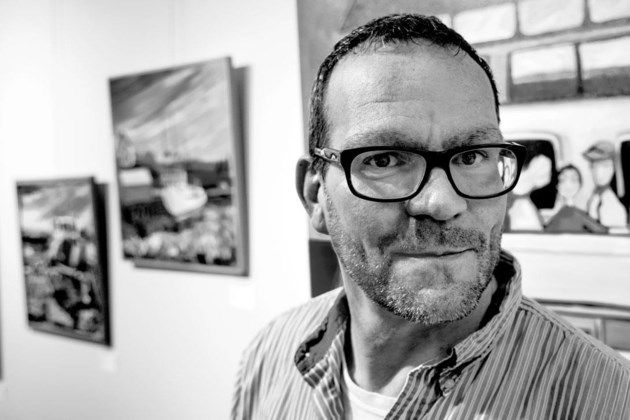
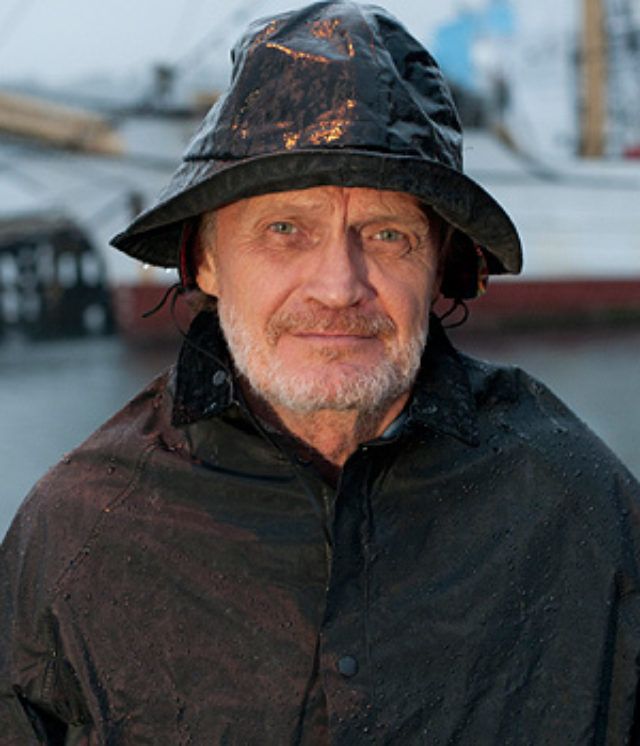
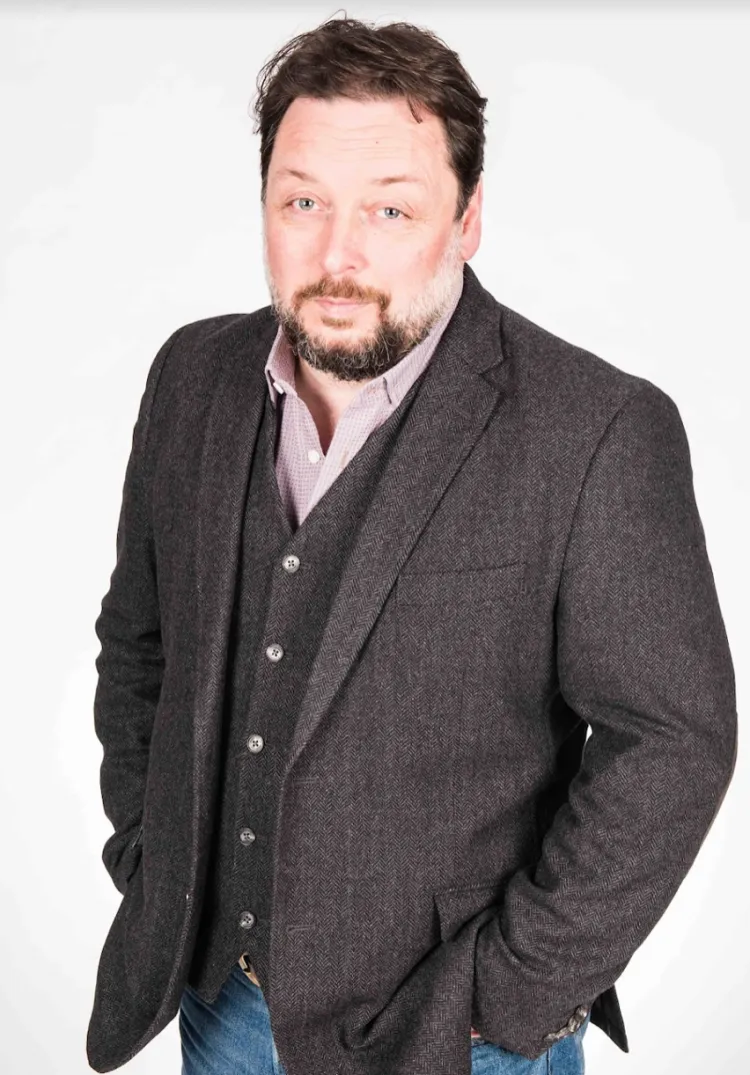
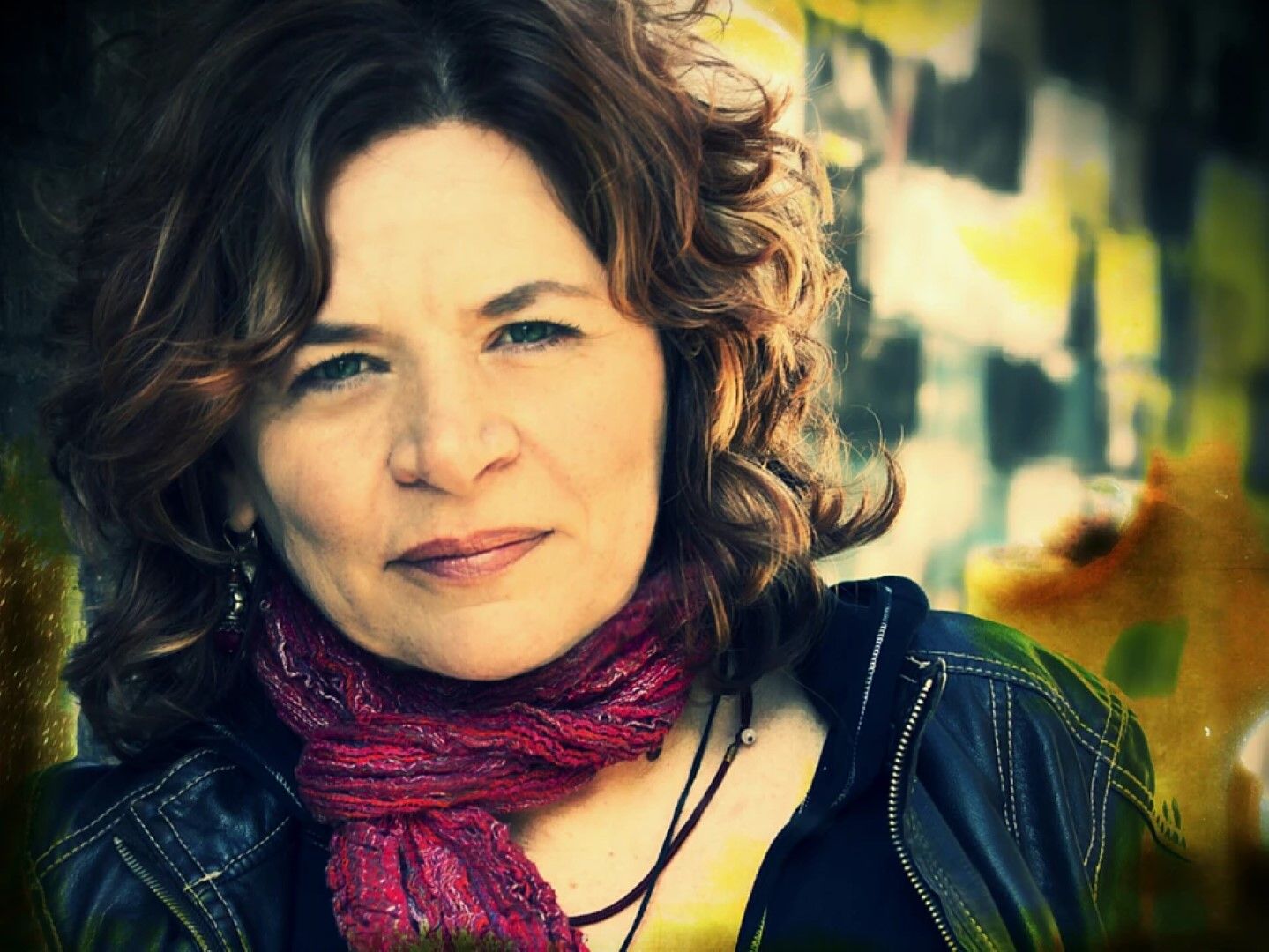
Andre Haines (composer and musical director): I had completed my first opera that had been staged down in Yarmouth at the Arts Centre there. [Lexx co-creator Lex Gigeroff, also Andre’s brother] came down and saw it. He said, ‘Listen, I want you to come [and] meet [producer] Paul [Donovan] and see about maybe getting a chance to do this musical.’ So I said, ‘Okay, of course, I’d love to do that.’
Brian Downey (actor; Stanley H. Tweedle): I thought it was a crazy idea. I think one of the fears I had was that I can’t really sing. Even though I made my living for ages as a rock-and-roll musician and a folk musician, that doesn’t require a lot of singing. Lots of standing around in tight pants.
Xenia Seeberg (Xev) to Starlog: “It fascinated me a lot, personally, because I had a chance to sing. From the bottom of my heart, I’m a singer, and that made the show an exciting challenge.”
Haines: I went over [to Paul’s] home in Halifax and his wife brought out a book of little German folk tunes. The idea was that I was to sit at the piano and improvise. So I open up the first one. I play the tune as it’s written, a little folk tune. And then I start different improvising, you know, changing the time signature, changing from major to minor keys, you know, rhythm pattern changes that kind of stuff. Just kind of horsing around. And then I got the job.
While Haines wanted to write original songs for the episode, the producers decided on using Teutonic folk tunes as the basis of music in the show. The storyline around which the music fitted saw a set of mysterious theater performers – led by a monologuing narrator (Jeremy Webb) – explain the history of the Brunnen-G, the race to which Kai (McManus) belongs. But while Xev and Kai are keen to participate in the production these thesps are mounting, and Stanley is more concerned about leaving and continuing their overarching mission.
Downey: They wanted me to be part of the ensemble, on stage. Thank God that Paul and the writers were genius enough to work around my sulkiness, [and] my refusal to cooperate. But it worked out well because I think the idea that Stanley was refusing and went away and came back gave a little more attention to the storyline.
Of course, shooting a comparatively low-budget TV program means that you don’t have the luxury of time. The whole thing had to come together very quickly. Bill Fleming directed, Gigeroff, Donovan, and Jeffrey Hirschfield shared writing credit and Mary Lou Martin was the choreographer.
Lex Gigeroff (who died in 2011) to Lexxverse: “I find it hard to believe that Andre and I basically knocked off all the songs in about two days.”
Downey: The rehearsal time was incredibly short. We had like a week all-in to do everything.
Haines: The fear was once it’s done and once it’s recorded, it can’t be changed. At the same time, we were working with the singers, teaching them the music, [and] working with Michael and Xenia on their voices. It all happened very fast.
With everything as close to ready as possible, the ensemble descended on Studio One of Electropolis, the production facility where Lexx shot in Halifax, Nova Scotia. Alongside the main cast, local music legend Lorraine Segato of the band The Parachute Club played the Time Prophet, and ex-pat Englishman Jeremy Webb was the Master of Ceremonies.
Jeremy Webb (actor; Master of Ceremonies): I’d met [casting director] John Dunsworth when I’d come over on a little exploratory mission to see whether I could make a new career and a new home in Canada. He loved the fact that I trained at the Bristol Old Vic and that I did a lot of Shakespeare and stuff. I remember one day he had me doing a Hamlet soliloquy in his office, which was like a street front. All these people were walking past his storefront office, watching me do full-on Shakespeare because I was trying to impress this Canadian casting director. I forgot about this until I knew I was going to be talking to you but I auditioned for Stanley [when they were originally casting the series].
Lorraine Segato (actor; The Time Prophet): I was living in Nova Scotia waiting to release a record and had just finished a music video with a director who happened to be directing in the Lexx series. He asked me if I wanted to play a character named the Time Prophet and I said yes. Time Prophet was intended to be a cross between a wise woman and a prophetic seer.
Haines: I believe that Michael [McManus, Kai] had had some training and done some singing on the stage. I think he maybe did The Threepenny Opera? I mean he did have vocal abilities, right?
Downey: McManus fucking loved it! You kidding me!? Get a chance to sing on stage in a costume that’s not his regular costume? Hell, yeah. Xenia too becomes more than just a sex symbol or the desirable entity in the show, I think she loved getting out of that box and trying something else. And she can sing.
Haines: Xenia was a delight to work with – loved to sing, was beautiful and happy and joyful all the time to be singing.
Seeberg (Xev) to Starlog: “We first live-recorded everything on a huge stage at the studio and then we went and shot it again. I loved it.”
Webb: I remember being stuck up at the top of this walkway, there was a huge giant crane camera because they were in the big soundstage at Electropolis, which is the studio that no longer exists where we shot the show and I remember walking down and doing this gigantic speech. I remember I got all the way to the bottom and they said, ‘Just keep going until you have to stop because we will cut around it.’
I kept going and going and going and I got very close to the end and I sort of stopped and went ‘And that’s as much as you’re going to get from me. Thank you!’ And the crew burst into applause because they’d never seen someone talk and walk that long on that show.
Segato: I remember there was a lot of fog effect on the set. I remember the crew was lovely and I remember my outfit which was kinda wacky. I loved that outfit. Wish I had it as a keepsake. I also love the name Time Prophet and I kept it as [my] email.
Haines: When we were recording it, [Lorraine] says to me, ‘Andre, Andre I got to do my thing on this.’ I’m like, ‘What are you gonna do?’ She goes, ‘I’m gonna back phrase the whole thing.’ She did her Segato thing.
Downey: Stanley’s boots had a very generous top. They were demi-boots so they came past my ankles by about four or five inches. I was able to get a packet of cigarettes, matches, a sandwich, something to drink, and my camera in my boots. I took my camera and myself up to a very high position on the catwalk and so I’ve got a lot of these really nice stills [of the episode].
Haines: I ended up having to dub one of the actors because he couldn’t make it for the dubbings. So I did all his vocal work and I sang a lot of other little bits and a lot of the chorus work is me singing as well. You do have to resample notes and make pitch corrections, which you’re fortunate enough to be able to do in film and video. There are a couple of places where it’s actually my voice singing one note. But [Michael] has a lovely voice to work with and a beautiful range to write in. Actually, the whole show was pitched for his voice.
Webb: We all had gigantic crushes on Xenia. I remember one night, I think I was having trouble with a girlfriend, somebody was trying to make me jealous and Xenia very sweetly came into the bar with me and gave me a little kiss in front of everyone so that everyone thought I was really cool.
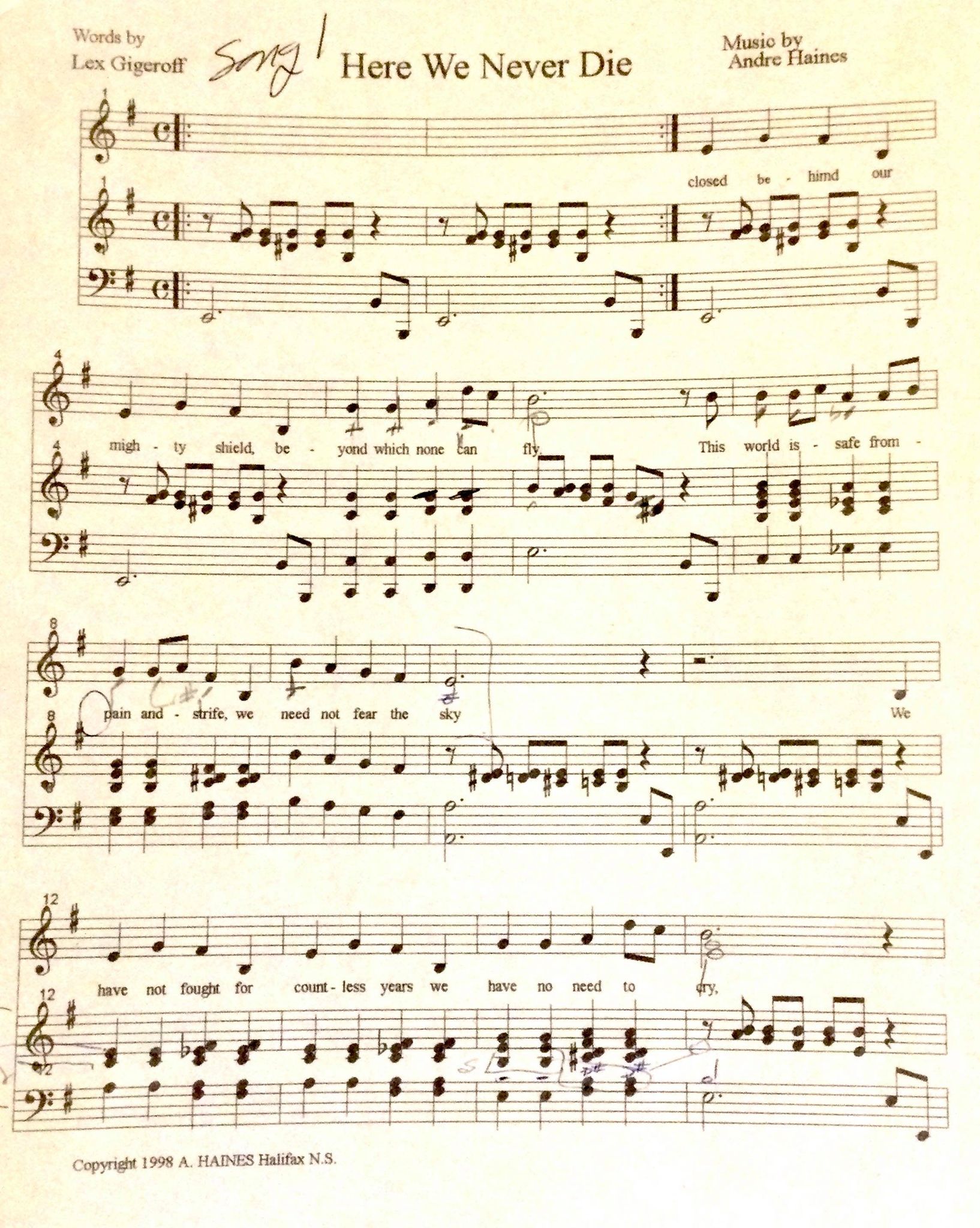
When the episode finally aired, it immediately became a fan favorite not only for its boldness and verve but for the history it added to Kai’s character.
Segato: I had no idea what the plot was about at all.
Webb: I had no clue what I was talking about. I said, ‘Am I getting the story right?’ And they’re like, ‘Yeah just keep doing that British theatrical thing that you do. Just make it sound important.’
Seeberg (Xev) to Starlog: “‘Brigadoom’ remains for me a very satisfying episode…I thought Bill Fleming did a great job, it was fun and challenging to shoot, and I think it holds up pretty well. Michael and Xenia’s performances were luminous and transcendent, as was Brian’s, whose laconic take on the whole thing provided the perfect counterpoint.”
Downey: We realized afterward that there was a great to-do made about the series Buffy the Vampire Slayer, they did a musical episode. Well, actually ours went to air before that episode. We were the first.
Haines: I had a couple of different reactions to it. I loved the visuals and I was so proud of how the cast did it so quickly, I mean the speed at which these people had to work was tremendous. It’s mixed when you see something like that because it’s not exactly the memory that I have of it, right? My memory was sitting a few feet away from the camera on my keyboard, watching the stage, [and] listening to the music.
Webb: The thing I remember the most was everyone on the crew being kind of freaked out that they were doing a theater episode. It was kind of a new thing. It wasn’t like short bursts of dialogue, you know half a dozen lines in a scene and then cut.
Haines: I was a little surprised when I actually heard the score back from [the orchestrator] because he did a beautiful job orchestrating it, but very different orchestration than what I would have done. I would have done it in a much more kind of chamber Les Mis kind of sound. It was beautiful what he did, he really took my music and scored it beautifully, and used my harmonies beautifully.
It’s not like I’m faulting anybody. I just would have chosen different instruments and different synthesized sounds.
Webb: I found myself in this little cafe, which was the only Internet cafe in Halifax where you could rent time on a computer because nobody had home computers at that point. It was just at the cusp of all that beginning. A number of us would go in [the Lexx chatrooms] and then they would work out who we were and freak out that the Master of Ceremonies from ‘Brigadoom’ was there.
Downey: The fans put on the entire ‘Brigadoom’ show in costume. They bring wardrobe with them, dress up… I think one time I rented some kind of huge space at the university and they actually did the show word-for-word, song for song. They knew all the dialogue, all the songs, all the music. It was great. And that wasn’t the only time that happened.
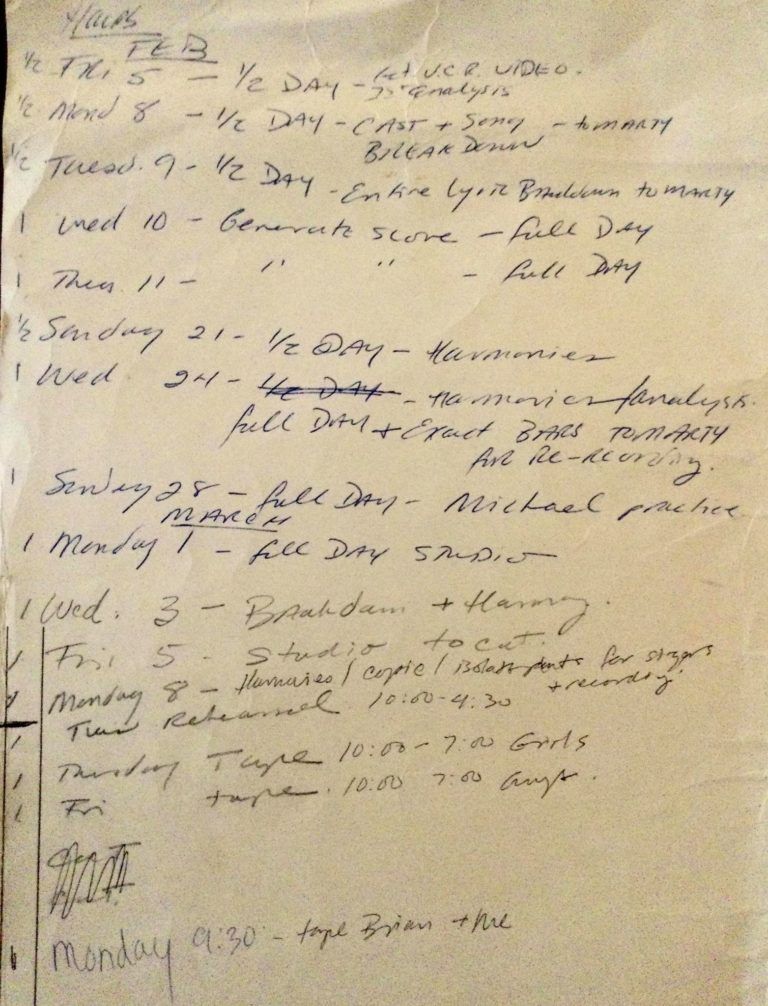
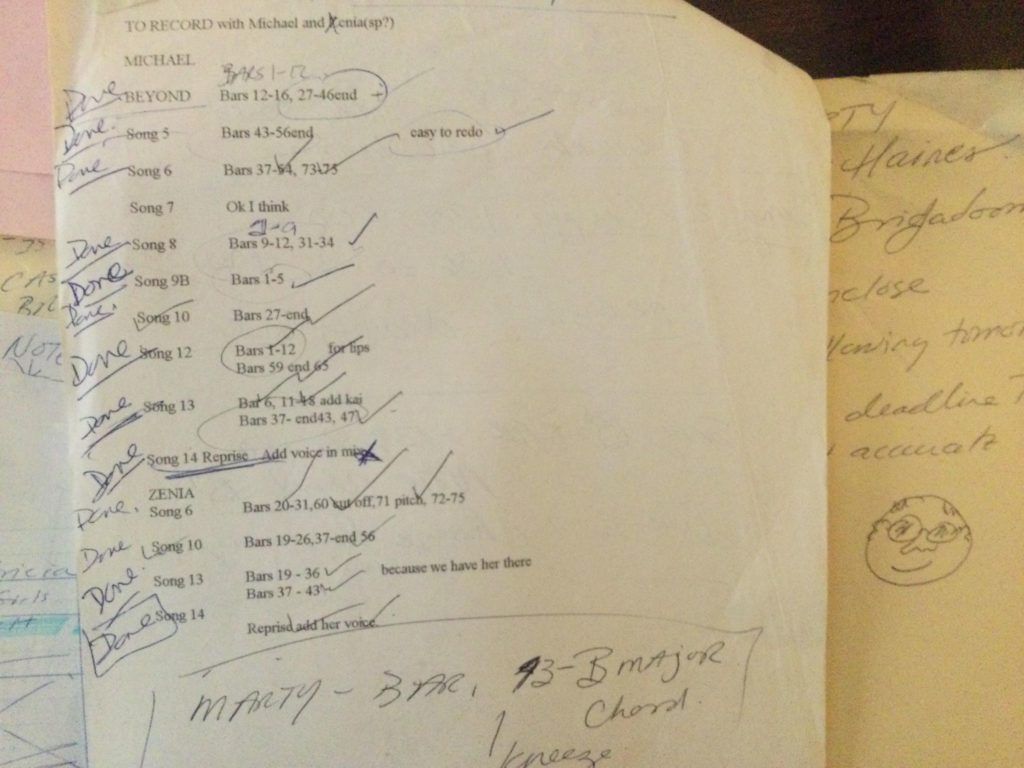
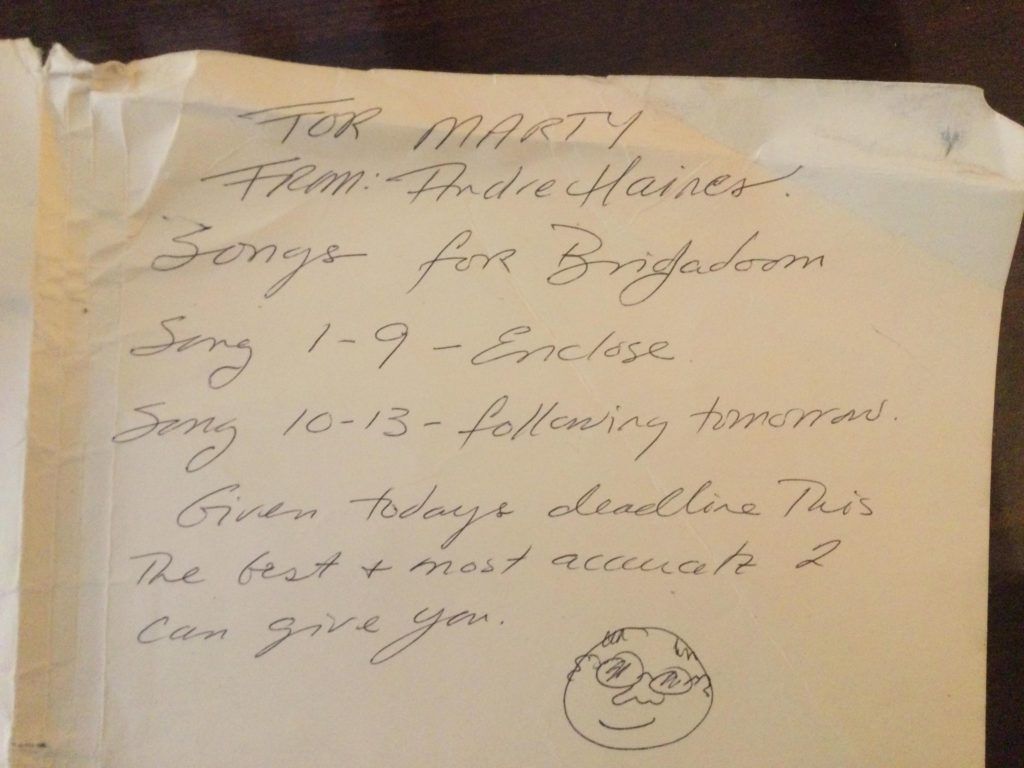
Twenty-two years later and the legacy of ‘Brigadoom’ still looms large amongst Lexx-ers, as well as sci-fi fans in general. These days, Brian Downey still acts, Jeremy Webb is the artistic director of the Neptune Theatre in Halifax, Nova Scotia, and Andre Haines spends a lot of time selling his visual art. Michael McManus generally stays off the radar while you can still see Xenia Seeberg on Instagram.
Downey: There must be something about a tangent in sci-fi shows that people become more attached to.
Segato: I heard that the series was kind of cult popular in Europe in the 90s, but I have no idea really if that’s true.
Webb: I remember once being told it had been voted the most popular episode of all the series. It was kind of cool. Years later, I got wind that the staff I had [in the show] was being auctioned off on eBay. I looked and found it and I was like, ‘Oh, yeah, it totally is.’ I don’t know what it went for.
Downey: What was interesting about the writers and the producers was that they were always willing to come up with ideas and people would say ‘Are you fucking kidding me?’ But they would say ‘No, we’re not kidding, we’re going to do this’ and quite often it worked out very well.
Webb: The show itself was so weird and freaky and crazy, but to be in that iconic episode, I’m still very proud of it. It’s still on my resume, even though it was 22 years ago.
Haines: [Listening back to it] I was really pleased with the overall sound and the chords and the structure of the music. I do this thing here called “Five O’clock Somewhere” and I have a drink in my hand and I get on the piano and I play. I think that I should do an online singalong for ‘Brigadoom’ fans, and I can play the score and everyone can sing. I think that would be fun.
This article was first published on February 7th, 2021, on the original Companion website.
The cost of your membership has allowed us to mentor new writers and allowed us to reflect the diversity of voices within fandom. None of this is possible without you. Thank you. 🙂






